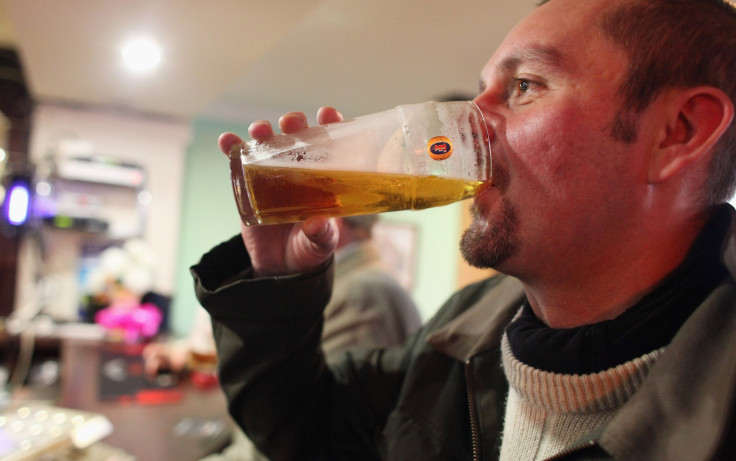Alcoholism Treatement: New Method Erases Memories Of Drinking, Fights Addiction Using Horse Tranquilizer

Researchers found that a radical new treatment involving horse tranquilizer ketamine may be effective in treating alcohol addiction by wiping out a patient's memories of drinking, The Guardian reported Tuesday.
The news comes based on studies conducted by psychologists at the University College London on how a single dose of ketamine, a controlled substance in both the U.S. and U.K., would affect chronic drinkers through what was essentially the strategic erasure of certain memories. Health psychologist and associate professor Ravi Das, one of the project's lead researchers, said there was evidence that the memory loss properties of ketamine could effectively treat alcoholism.
“Memories that you form can be hijacked by drugs in some people,” Das told The Guardian. “If you were an alcoholic you might have a strong memory of being in a certain place and wanting to drink. Those memories get continuously triggered by things in the environment that you can’t avoid.”
Alcohol is one of the most regularly used addictive substances in the world and one of the few with which withdrawal is so severe it has been linked to death. The search for effective treatments has led scientists to analyze the psychology of its addiction and the cravings associated with it. While symptoms have long been pinned to physical impulses, researchers are now looking into how subconscious triggers play an underlying, yet crucial role in perpetuating certain patterns of behavior.
The current testing method involves researchers placing a glass of beer in front of an individual who is a heavy drinker and surprising the participant in order to interrupt his or her train of thought. The individual was then administered a dose of either ketamine or a placebo substance and monitored to determine whether or not he or she would then go for the drink. The team was still in the process of evaluating the results, but, if successful, would demonstrate ketamine's ability to block the call-and-response relationship between the subject seeing the glass of beer and his or her desire to drink it.
Trials began in June after ketamine had caught the eye of researchers at other institutions such as the University of Exeter in London and the University of Columbia in New York. Based on prior tests suggesting the drug could be used to treat depression, University of Exter Professor Celia Morgan was one of the researchers who felt ketamine treatment presented a possible breakthrough for chronic drinkers.
“There's new scientific evidence in animal models suggesting that their brains might be primed to learn more [after taking ketamine],” Morgan told Vice News' Motherboard channel in June. “So it could help people who are stuck in a rut with alcoholism. It may prime your brain to take on new experiences from the world.”
Ketamine is considered a Class B substance in the U.K. with possession punishable by up to five years in prison, and a schedule III substance in the U.S., where penalties vary by state. Jail time and fines increase significantly in both countries for those caught trafficking the drug.
While researchers did not suggest they were attempting to legalize ketamine, a potentially addictive substance itself, for recreational use, they hoped that successful trials would convince federal agencies to make it available for treatment. Frequent relapses, however, remain the biggest obstacle to the proposed method.
© Copyright IBTimes 2024. All rights reserved.












